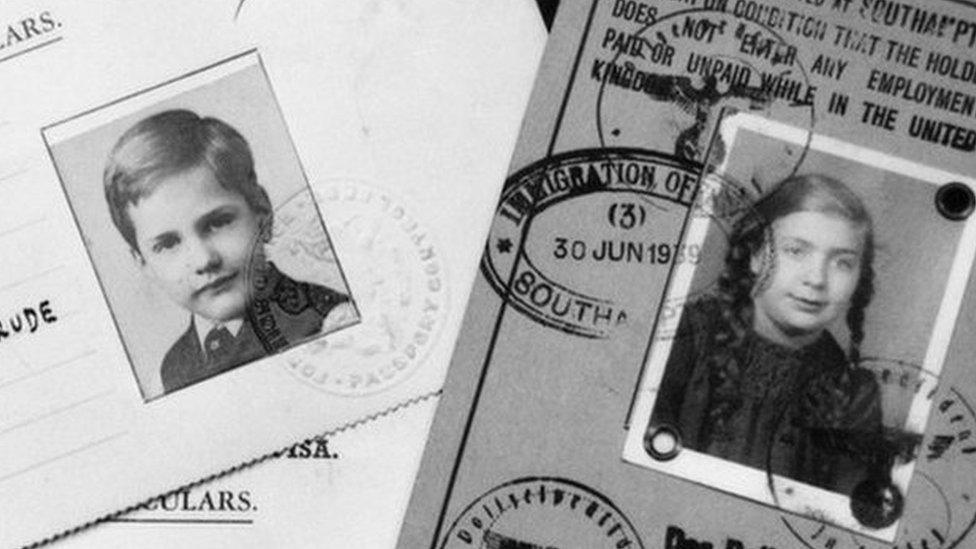Holocaust survivors' stories 'could help' child refugees
- Published
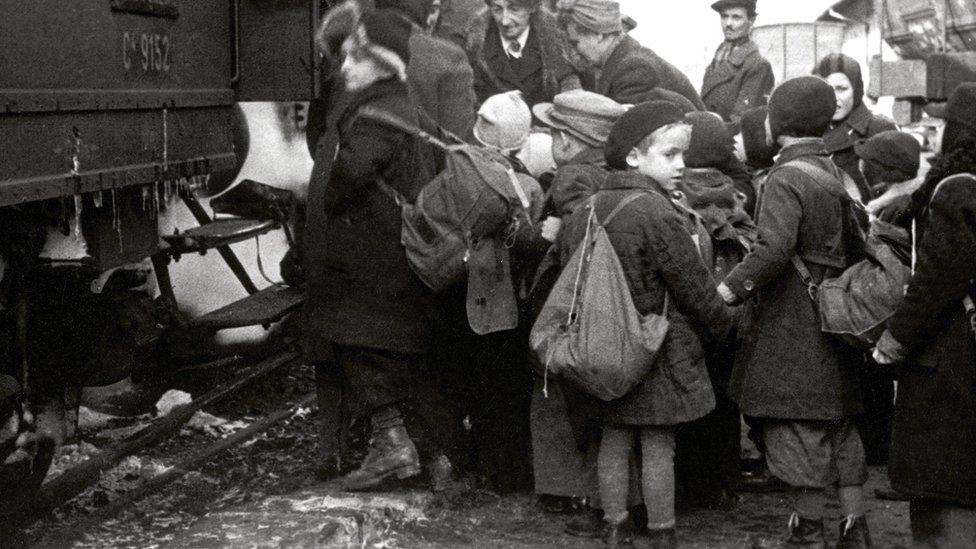
Thousands of children were transported to safety on the Kindertransport, ahead of World War Two
The stories of child survivors of the Holocaust could be used to help improve the lives of refugees in the UK, university researchers have said.
About 10,000 mainly Jewish children escaped from the Nazis in the 1930s thanks to the Kindertransport scheme.
A study at Aberystwyth University will look at how those children's experiences went on to affect them in their adult lives.
Dr Andrea Hammel said it could help children fleeing conflict today.
On Monday, events were held across the world to mark Holocaust Memorial Day, the 75th anniversary of the liberation of the Auschwitz-Birkenau concentration camp.
First Minister of Wales Mark Drakeford joined Holocaust survivors at a national service of commemoration at City Hall, Cardiff, where he called for people to "stand together" and "celebrate our differences".
"We must believe there is more that unites us than drives us apart. It's the only way to make sure these sorry events stay exactly where they belong - in the history books," he said.
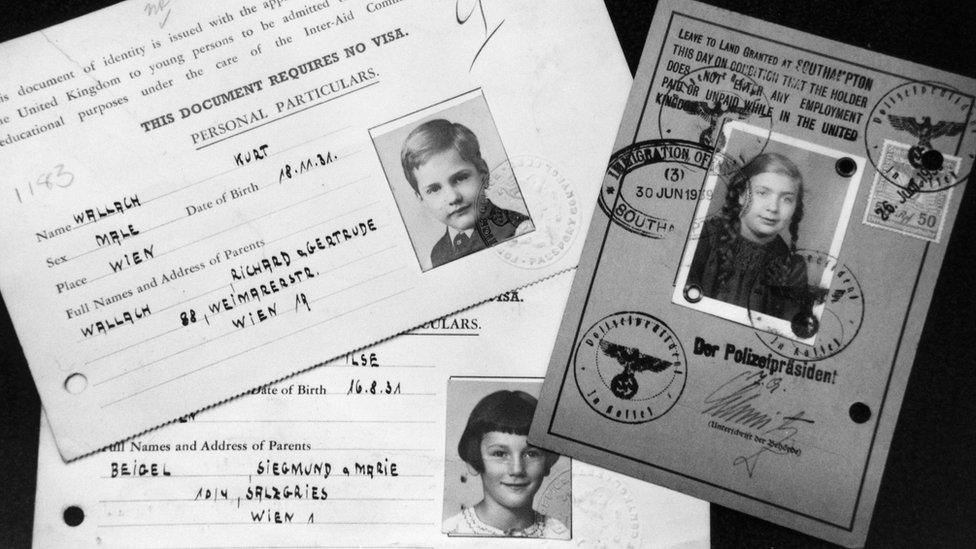
This picture shows the travel documents for three children who were brought to Britain from Austria to escape the Nazis
The new research will see a team from the university's department of modern languages look at accounts of the violence child survivors witnessed and experienced and study how it affected them in later life.
It is hoped this will inform policy to help ensure child refugees arriving in the UK are getting the right support today.
"They describe seeing members of their families and communities being beaten and humiliated, most suffered verbal, and some suffered physical abuse themselves, before being able to flee and resettle in the UK," Dr Hammel said.
"But in some cases their ordeal did not end there.
"Child refugees of the 1930s and 40s tell of stories of abuse and neglect in their early years after arrival as institutions tried to cope with finding suitable placements for those who had arrived unaccompanied, and educational and psychological support for all child refugees, including those who fled with their equally traumatised families."
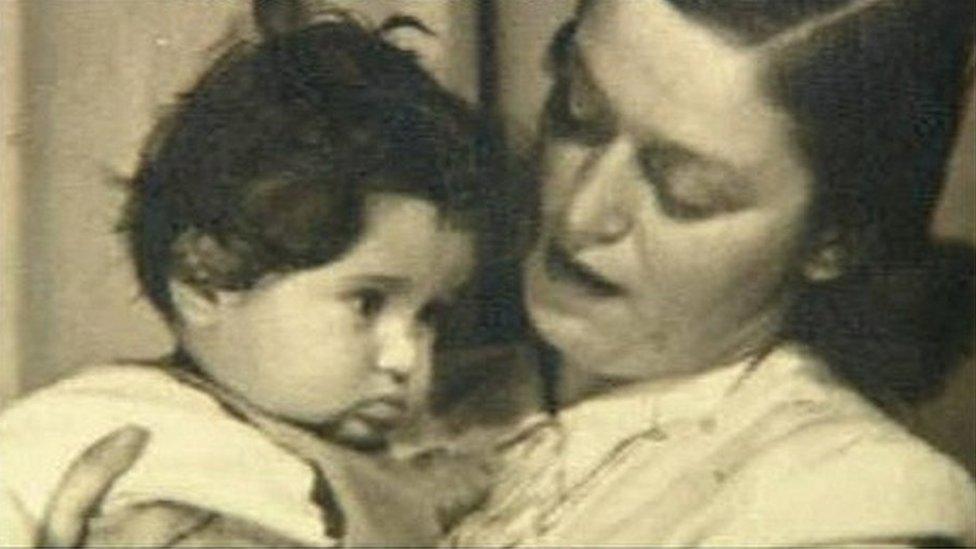
Eva Clarke as a baby with her mother Anka, who went into labour with her shortly after arriving at the Mauthausen concentration camp
Eva Clarke was born at Mauthausen concentration camp and was three days old when the camp was liberated.
She grew up in Cardiff after her widowed mother remarried and the family moved to the UK in 1948.
Mrs Clarke told BBC Radio Wales she felt it was her duty to share her mother's story with the world and future generations.
"I was born in a camp, so I feel it is very important to tell these stories, to show what can happen when racism and prejudice reach their logical conclusion which is genocide," she said.
"I think we all have a responsibility to prevent these things happening again."
- Published27 January 2020
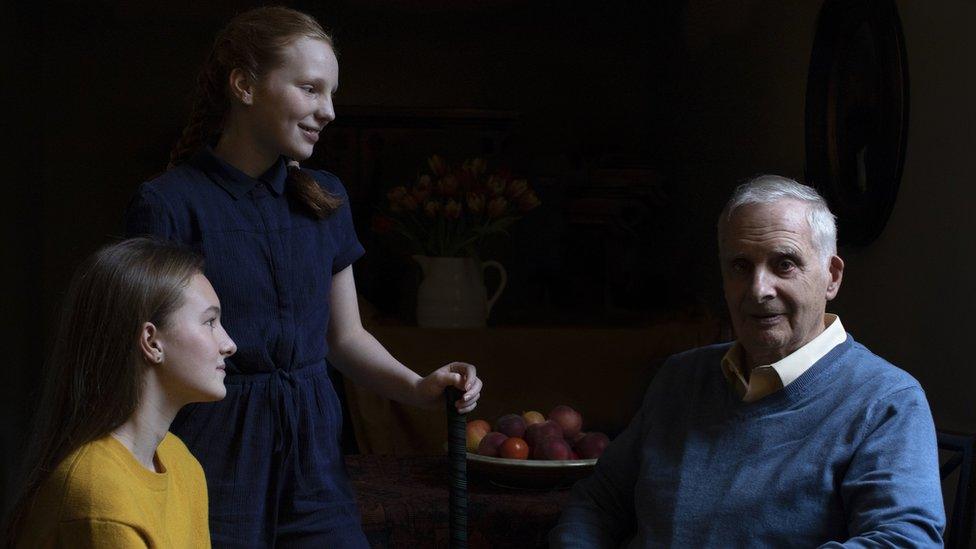
- Published27 January
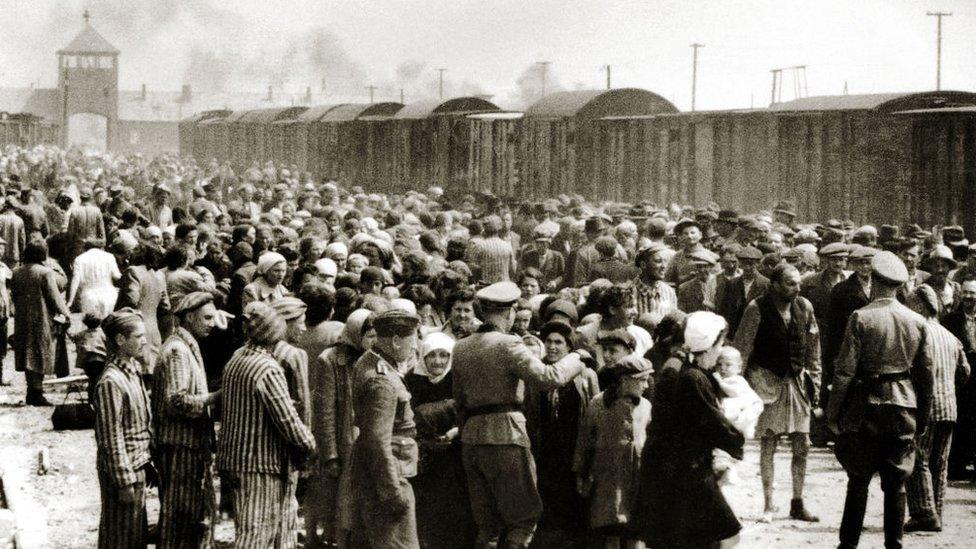
- Published15 August 2019

- Published22 June 2018
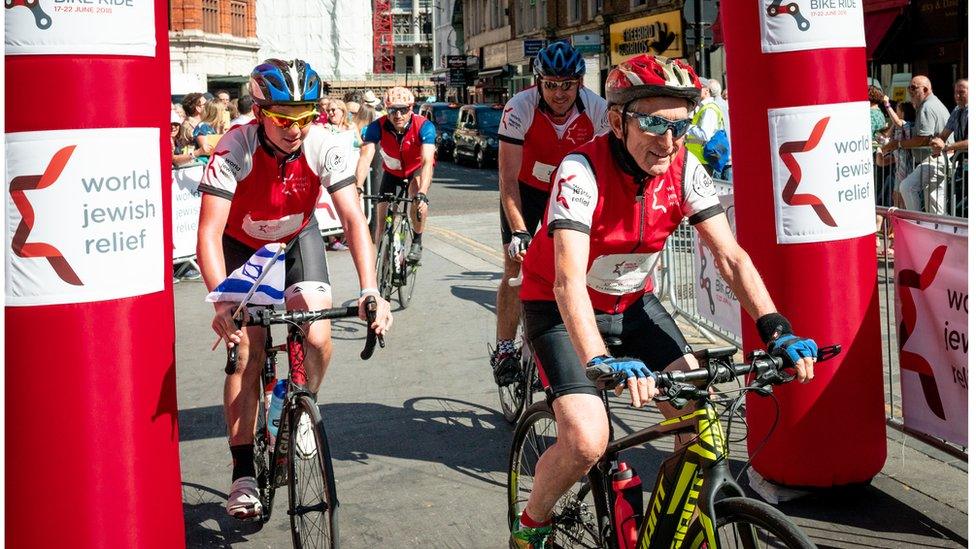
- Published12 July 2019
